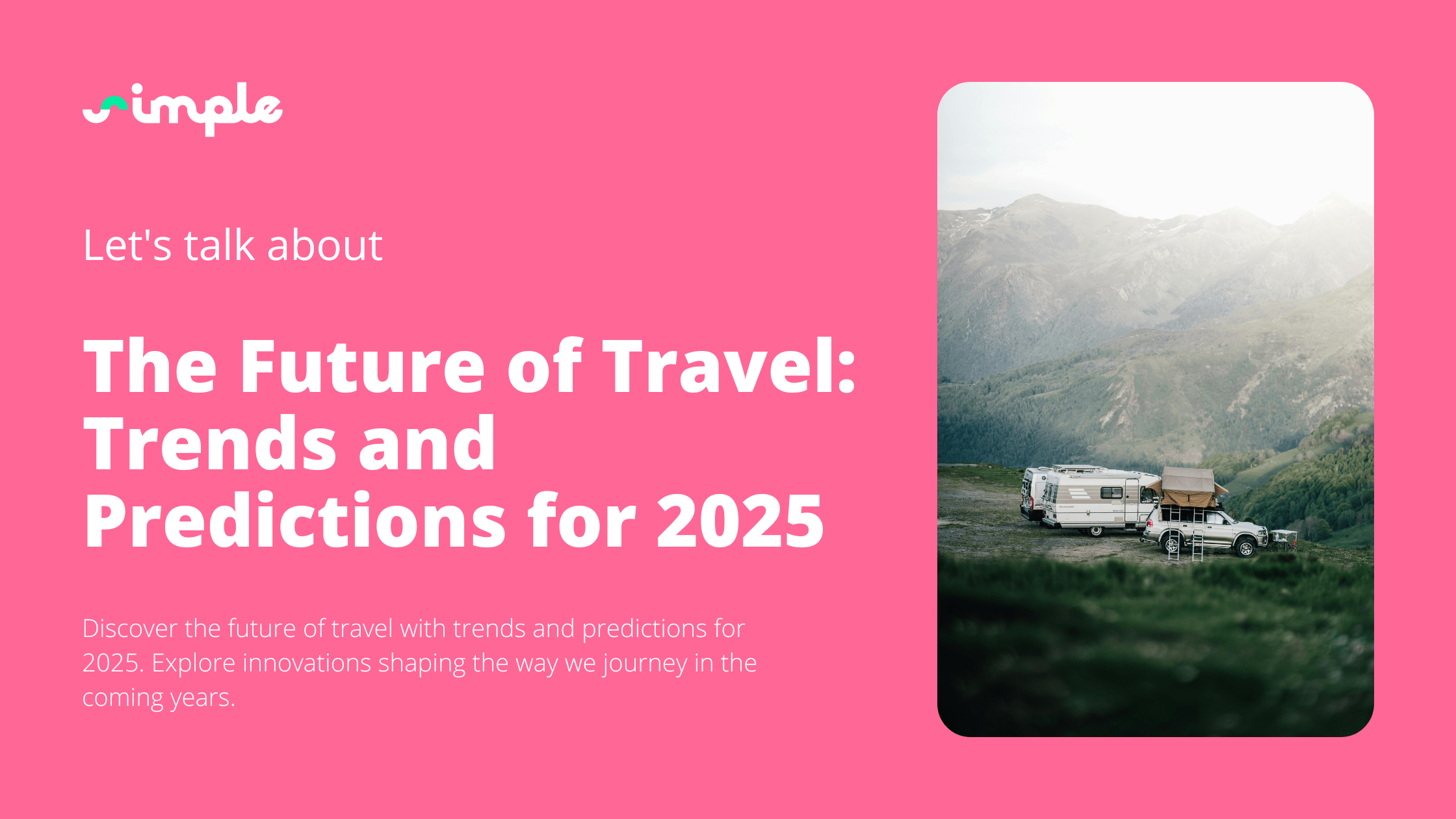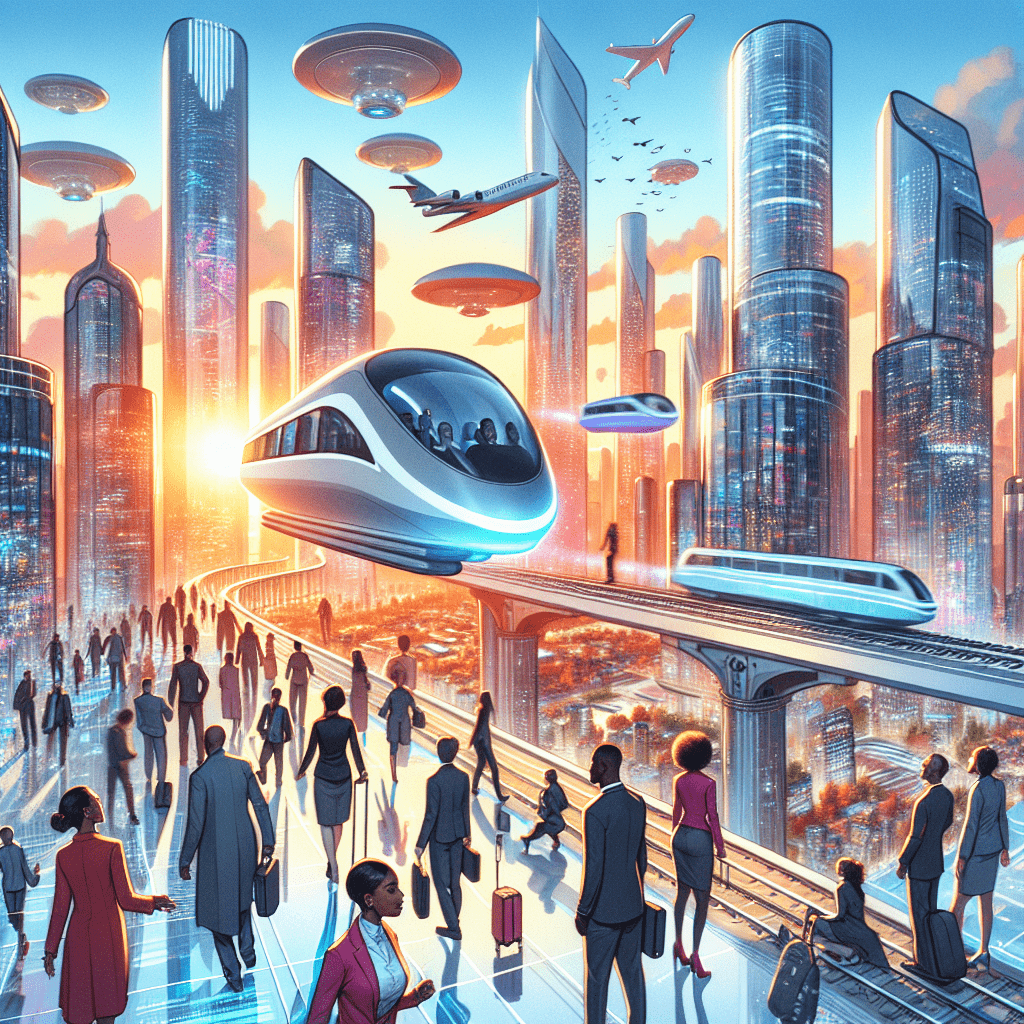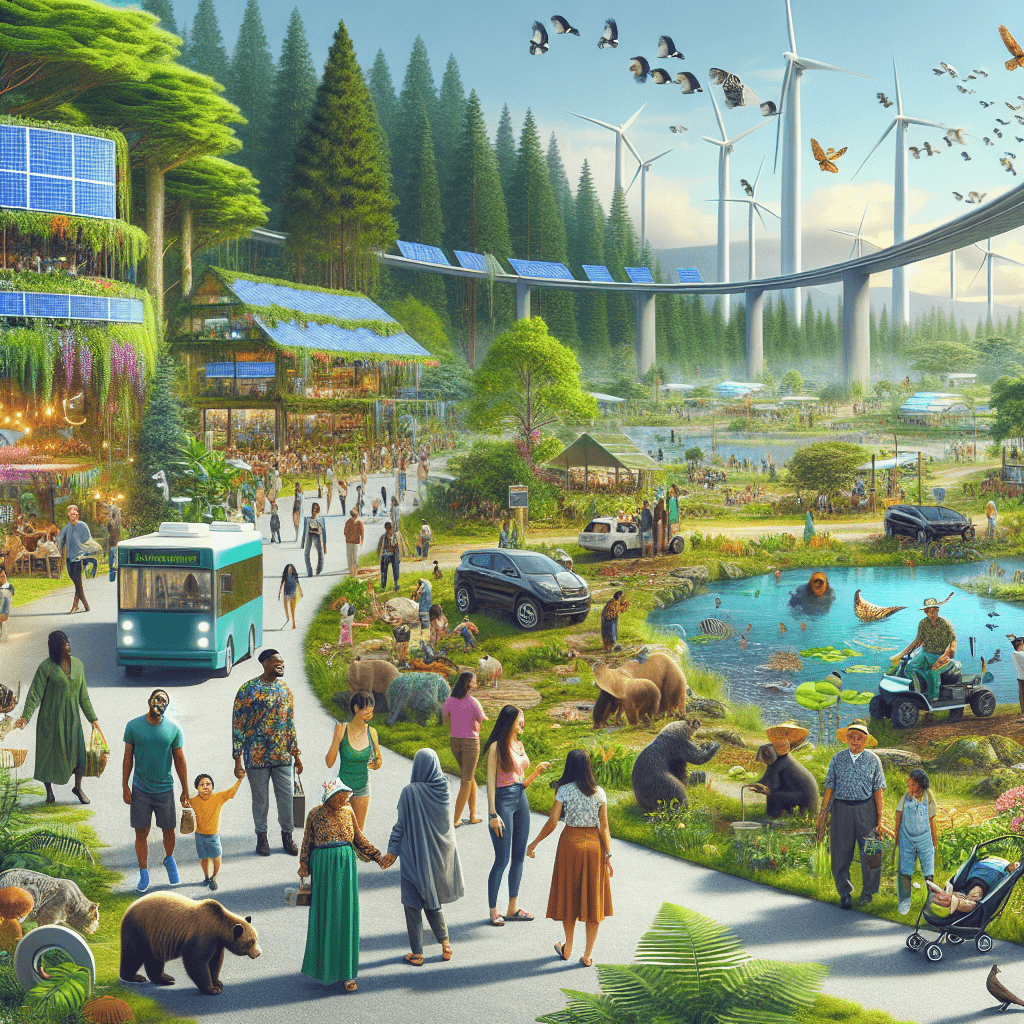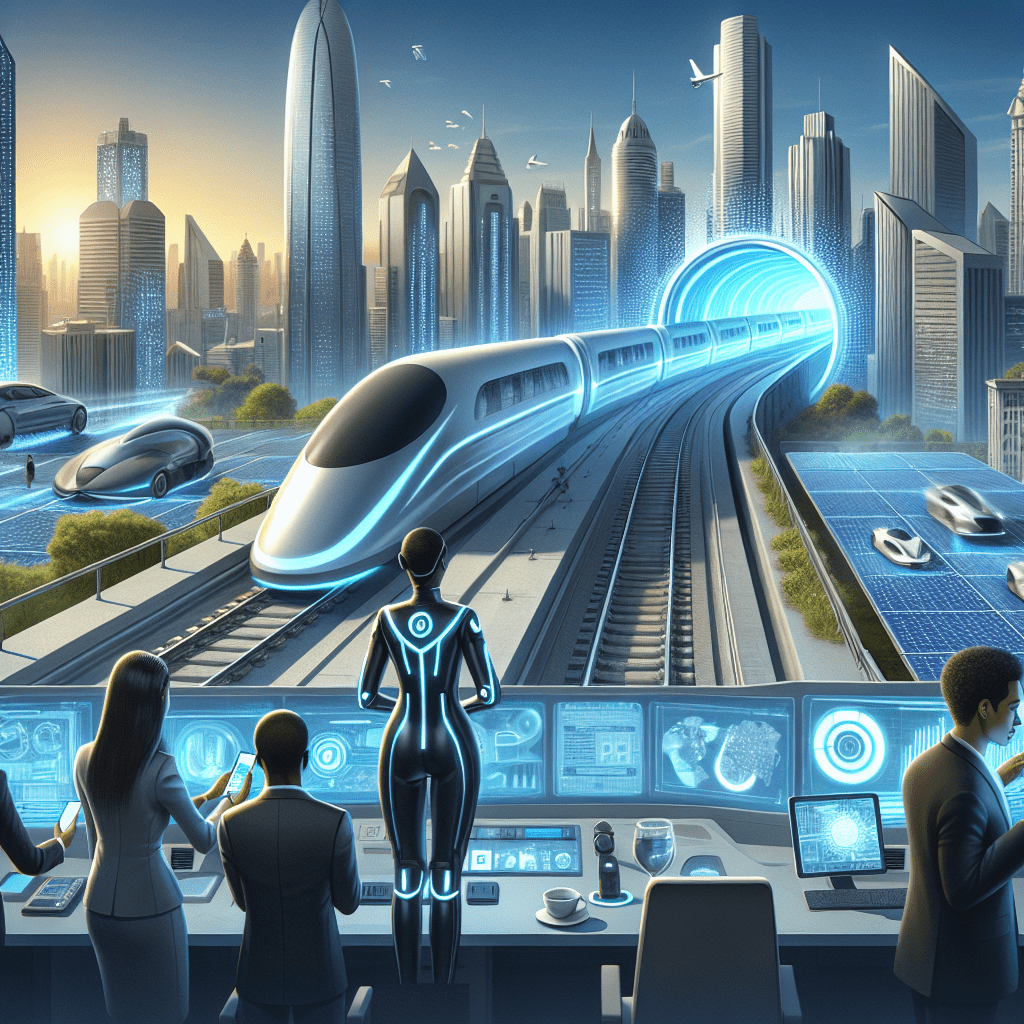The Future of Travel: Trends and Predictions for 2025

As we approach 2025, the travel industry is on the brink of a transformative era, driven by rapid technological advancements and shifting consumer preferences. Understanding the future of travel is crucial for both industry stakeholders and travelers who wish to stay ahead of the curve. The landscape is evolving with a focus on sustainable tourism, smart travel solutions, and personalized experiences that cater to the modern traveler’s needs. The importance of these trends cannot be overstated, as they will shape how we explore the world in the coming years.
In the near future, travel will be characterized by innovations that enhance convenience, safety, and environmental responsibility. From the rise of eco-friendly travel options to the integration of cutting-edge travel technology advancements, the industry is poised for significant change. As we delve into these topics, it becomes clear that the future of travel is not just about reaching destinations but also about enriching the journey itself. For those interested in exploring the possibilities of travel 2025, staying informed about these trends is essential.

Technological Advancements in Travel
Integration of Artificial Intelligence in Travel Planning
The integration of artificial intelligence (AI) in travel planning is revolutionizing the way travelers experience the world. AI-driven platforms are now capable of creating personalized travel experiences that cater to individual preferences and needs. By analyzing vast amounts of data, these systems can recommend destinations, accommodations, and activities that align with a traveler’s interests, budget, and past travel behavior. This level of personalization not only enhances the travel experience but also saves time and effort in planning.
AI-driven customer service is another significant advancement in the travel industry. Chatbots and virtual assistants are increasingly being used by airlines, hotels, and travel agencies to provide instant support and assistance. These AI tools can handle a wide range of inquiries, from booking changes to travel safety measures, ensuring that travelers receive timely and accurate information. As AI technology continues to evolve, its role in travel planning and customer service is expected to expand, offering even more sophisticated solutions to meet the demands of modern travelers.
Virtual and Augmented Reality
Virtual and augmented reality (VR and AR) are transforming the way travelers explore and experience destinations. Virtual destination previews allow travelers to immerse themselves in a location before making a decision to visit. This technology provides a realistic glimpse of what to expect, helping travelers make informed choices about their travel plans. Whether it’s a virtual tour of a hotel room or a walk through a city’s streets, VR offers a unique opportunity to explore destinations from the comfort of one’s home.
Enhanced in-destination experiences are another benefit of AR technology. Travelers can use AR applications to access real-time information about landmarks, historical sites, and local attractions. By overlaying digital content onto the physical world, AR enriches the travel experience, providing context and insights that enhance understanding and appreciation. As VR and AR technologies continue to advance, they are set to play a pivotal role in shaping the future of travel, offering innovative ways to explore and engage with the world.
Impact of 5G Connectivity on Travel
The rollout of 5G connectivity is poised to have a profound impact on the travel industry, offering faster and more reliable internet access for travelers around the globe. One of the key benefits of 5G is the ability to provide real-time travel updates and communication. Travelers can receive instant notifications about flight changes, weather conditions, and local events, allowing them to make informed decisions and adjust their plans accordingly. This level of connectivity enhances the overall travel experience, ensuring that travelers are always informed and connected.
Seamless connectivity for travelers is another advantage of 5G technology. With faster download and upload speeds, travelers can stay connected with family, friends, and work while on the go. This is particularly beneficial for those embracing the digital nomad lifestyle, as it enables them to work remotely without interruption. As 5G networks continue to expand, they will play a crucial role in supporting the growing demand for smart travel solutions and enhancing the overall travel experience.

Sustainable Travel Practices
Rise of Eco-Friendly Accommodations
The demand for eco-friendly accommodations is on the rise as travelers become more conscious of their environmental impact. Green certifications and eco-labels are becoming essential markers for travelers seeking sustainable tourism options. These certifications ensure that accommodations adhere to specific environmental standards, such as energy efficiency, waste reduction, and water conservation. By choosing hotels and resorts with these credentials, travelers can contribute to the global effort to reduce the carbon footprint of the travel industry.
Energy-efficient infrastructure and practices are at the forefront of this movement. Many accommodations are investing in renewable energy sources, such as solar and wind power, to reduce their reliance on fossil fuels. Additionally, the implementation of smart systems for lighting, heating, and cooling helps minimize energy consumption. These innovations not only benefit the environment but also enhance the guest experience by providing a comfortable and sustainable stay. As the trend towards eco-friendly accommodations continues to grow, it is expected to play a significant role in shaping the future travel trends of 2025.
Growth in Sustainable Transportation Options
Sustainable transportation is a critical component of the travel industry’s shift towards eco-friendly practices. The increase in electric and hybrid vehicles is a testament to this change. These vehicles offer a cleaner alternative to traditional gasoline-powered cars, reducing emissions and promoting a healthier environment. Many car rental companies and ride-sharing services are expanding their fleets to include more electric and hybrid options, providing travelers with sustainable choices for their journeys.
The expansion of carbon offset programs is another significant development in sustainable transportation. These programs allow travelers to compensate for the carbon emissions generated by their travel activities, such as flights and car rentals. By investing in projects that reduce or capture carbon emissions, travelers can mitigate their environmental impact. This approach aligns with the broader goal of sustainable tourism 2025, which emphasizes the importance of balancing travel with environmental responsibility. As more travelers embrace these options, the travel industry will continue to innovate and expand its sustainable offerings.
Shift Towards Responsible Tourism
Responsible tourism is gaining momentum as travelers and industry stakeholders recognize the importance of minimizing negative impacts on local communities and environments. This shift emphasizes the need for travel practices that support local economies and preserve cultural and natural heritage. By prioritizing responsible tourism, travelers can contribute to the well-being of the destinations they visit, ensuring that tourism benefits both visitors and residents.
The impact on local communities and economies is a key consideration in responsible tourism. Travelers are increasingly seeking experiences that allow them to engage with local cultures and support local businesses. This approach not only enriches the travel experience but also provides economic opportunities for local communities. Additionally, the preservation of natural and cultural heritage is a central tenet of responsible tourism. Efforts to protect and conserve these resources ensure that future generations can continue to enjoy and learn from them. As the travel industry continues to evolve, the shift towards responsible tourism will play a crucial role in shaping sustainable travel practices and promoting a more equitable and environmentally conscious approach to exploration.

Changing Consumer Preferences
Demand for Experiential Travel
As we look towards 2025, the demand for experiential travel is becoming increasingly prominent. Travelers are seeking more than just sightseeing; they desire immersive cultural experiences that allow them to connect deeply with the destinations they visit. This shift is driving a surge in interest for activities that offer authentic interactions with local communities, such as cooking classes, traditional craft workshops, and cultural festivals. These experiences provide travelers with a richer understanding of the places they explore, fostering a sense of connection and appreciation.
Adventure and wellness tourism are also gaining traction as part of the experiential travel trend. Many travelers are looking to combine their love for exploration with activities that promote physical and mental well-being. From hiking and yoga retreats to spa getaways and eco-adventures, these experiences cater to the growing desire for travel that rejuvenates the body and soul. As the travel industry continues to evolve, the focus on experiential travel is expected to shape future travel trends, offering travelers more meaningful and fulfilling journeys.
Preference for Flexible Travel Arrangements
The preference for flexible travel arrangements is becoming a defining characteristic of modern travel. The rise of work-from-anywhere policies has given travelers the freedom to blend work and leisure, leading to an increase in demand for travel options that accommodate this lifestyle. Remote work travel trends are encouraging more people to explore new destinations while maintaining their professional responsibilities, creating a new category of travelers who prioritize flexibility and adaptability.
The popularity of long-term stays and digital nomadism is a testament to this shift. Many travelers are opting for extended stays in destinations that offer a conducive environment for both work and leisure. This trend is supported by accommodations that provide amenities such as high-speed internet, comfortable workspaces, and community engagement opportunities. As more people embrace the digital nomad lifestyle, the travel industry is responding with innovative solutions that cater to the needs of this growing demographic, further influencing the global travel forecast.
Health and Safety as Top Priorities
In the wake of the COVID-19 pandemic, health and safety have become paramount considerations for travelers. Post-pandemic travel plans are heavily influenced by the need to ensure personal well-being and minimize health risks. Travelers are increasingly seeking destinations and services that prioritize health protocols, such as enhanced cleaning measures, contactless check-ins, and social distancing practices. These considerations are shaping the way people plan and experience travel, with a focus on minimizing exposure to potential health threats.
The incorporation of health protocols in travel services is now a standard expectation. Airlines, hotels, and tour operators are implementing comprehensive safety measures to reassure travelers and provide peace of mind. This includes the use of advanced air filtration systems, regular health screenings, and the availability of personal protective equipment. As health and safety continue to be top priorities, the travel industry is adapting to meet these demands, ensuring that travelers can enjoy their journeys with confidence and security.

Conclusion
The travel industry is on the cusp of significant transformations as we approach 2025. The integration of advanced technologies, the rise of sustainable travel practices, and the shift in consumer preferences are all contributing to a new era of exploration. These changes are not just incremental; they represent a fundamental reimagining of how we travel. From the adoption of travel technology advancements like AI and 5G connectivity to the growing emphasis on eco-friendly travel options and responsible tourism, the industry is evolving to meet the demands of a more conscious and connected traveler.
As these transformations unfold, they will redefine the travel experience, offering more personalized, sustainable, and immersive journeys. The focus on health and safety, driven by post-pandemic travel considerations, will continue to shape the way we plan and undertake our adventures. The future travel trends we are witnessing today are setting the stage for a more innovative and responsible approach to travel, ensuring that the industry remains resilient and adaptable in the face of changing global dynamics.
Preparing for future travel experiences requires both travelers and industry stakeholders to embrace these changes and adapt to new realities. For travelers, this means staying informed about emerging trends and being open to new ways of exploring the world. Whether it’s embracing the digital nomad lifestyle, participating in sustainable tourism 2025 initiatives, or seeking out personalized travel itineraries, the opportunities for enriching travel experiences are vast and varied.
For industry stakeholders, preparation involves investing in travel industry innovations and smart travel solutions that cater to the evolving needs of travelers. By prioritizing sustainability, leveraging technology, and enhancing health and safety measures, the industry can create a travel ecosystem that is both forward-thinking and resilient. As we look to the future, the key to successful travel lies in our ability to adapt, innovate, and embrace the possibilities that lie ahead, ensuring that travel remains a source of inspiration, connection, and discovery for generations to come.